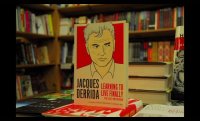The Pushcart Prizes, given annually since 1976 for poems, stories, and essays published by literary magazines and indie outfits, purport to highlight the "best of the small presses" in a yearly anthology.
Looking to apply some objective analysis to the results (and determine, by Pushcart standards, where his own fiction might be in the most distinguished company), one writer has taken to tracking winning venues over the years.
Since 2008 Clifford Garstang, author of the story collection In an Uncharted Country (Press 53, 2009) and editor of Prime Number Magazine, has looked back at the past ten years of Pushcart anthologies and calculated the most-honored magazines, using a system that awards points for Pushcart wins and honorable mentions. The results for 2012, broken out by genre, were reported last week his Perpetual Folly blog.
This year's tally saw Georgia Review, Ploughshares, and Southern Review taking top slots across all three genres, with Conjunctions ranking in the top five in both fiction and nonfiction. Poetry was the front-runner in its genre of specialization. Big movers in fiction, in relation to Garstang's 2011 rankings, were A Public Space and One Story. In nonfiction, Harvard Review and n+1 made jumps this year, tied for thirty-second place. (Small presses make a lesser showing, though BOA Editions holds the fifteenth spot in poetry.)
Garstang admits that ten-year retrospective he takes naturally favors older journals, as well as magazines that appear in print (only one online journal was highlighted in the 2012 award anthology). "Pushcart has for several years been criticized for discriminating against online magazines," Garstang writes on his blog. "Online magazines have made some inroads in the annual volume. I expect this will accelerate and the problem will correct itself. We shall see. In the meantime, for those of us who submit work to online journals—some of which are excellent—we have to look elsewhere for measures of quality."
For more information about the 2012 Pushcart Prize anthology, visit the prize website.










